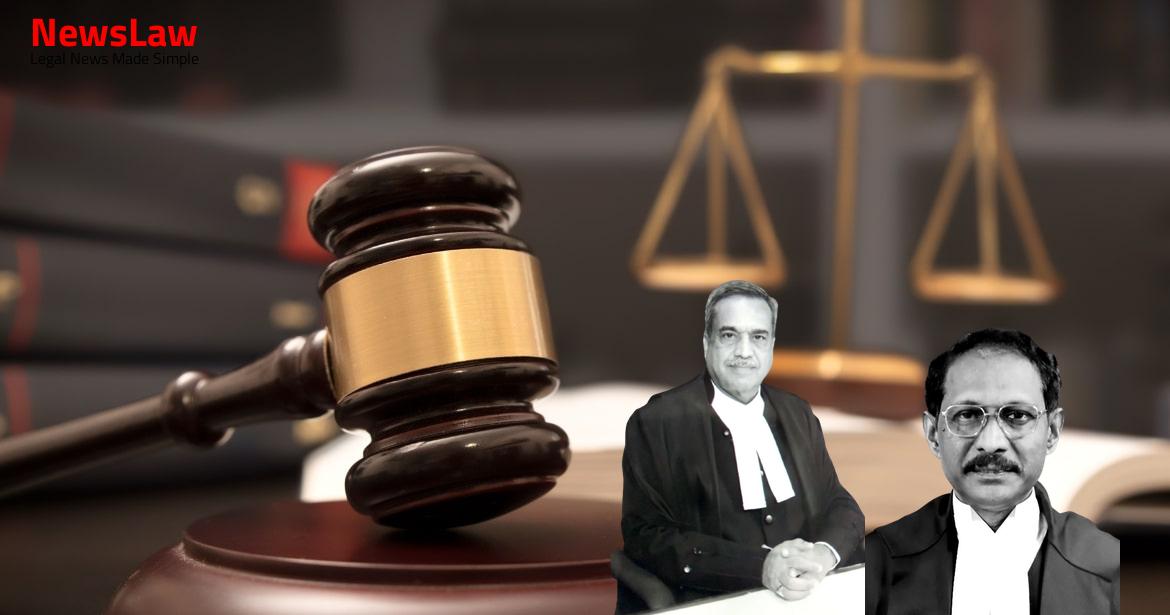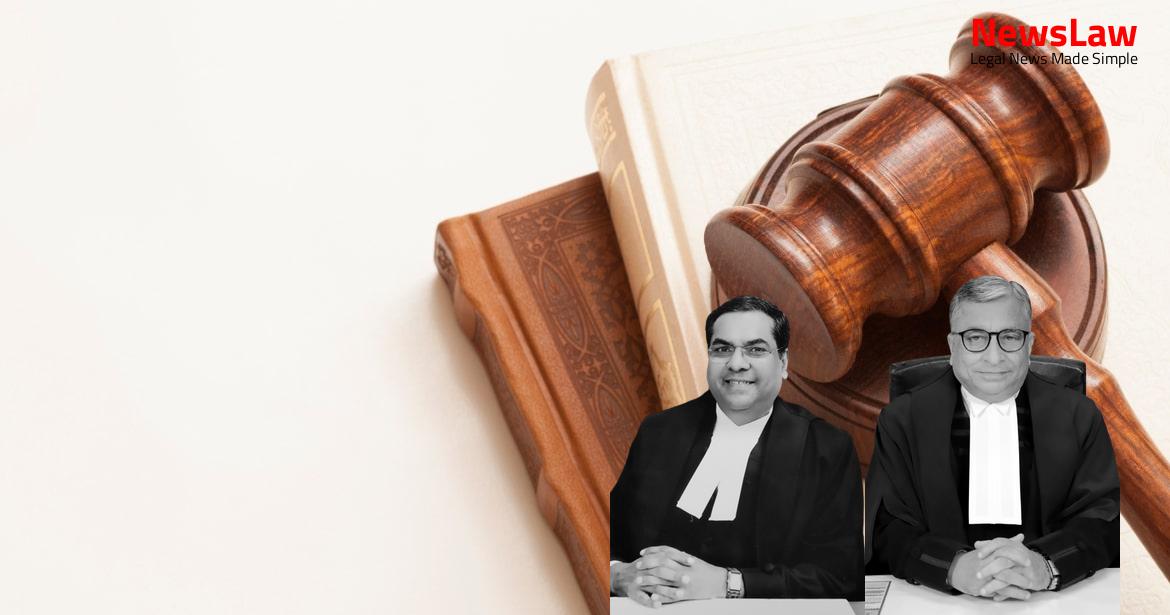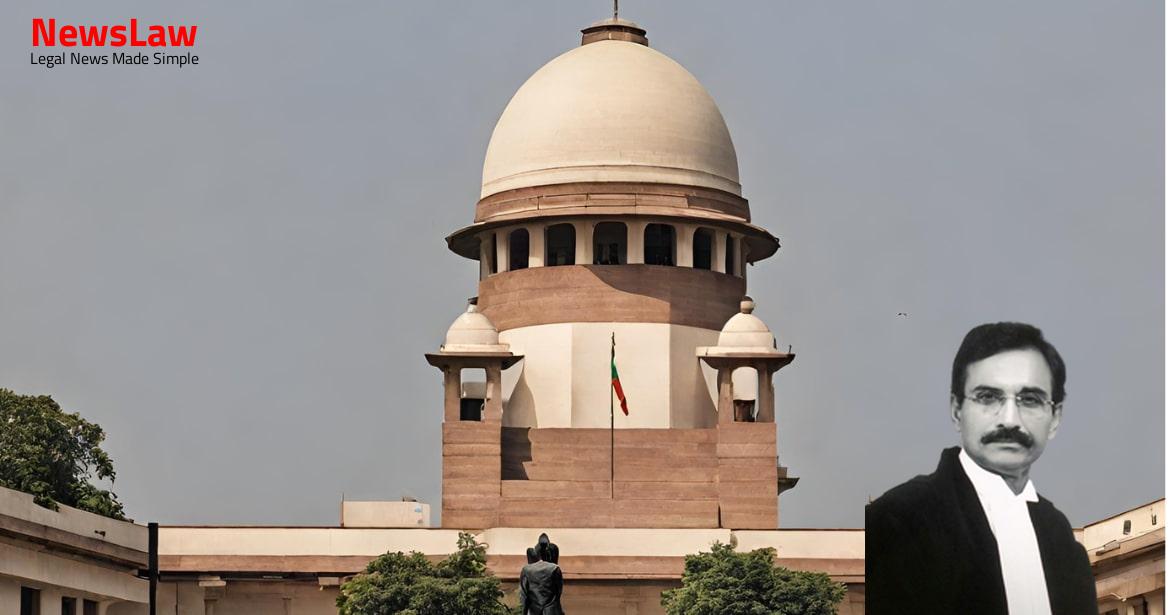Feeling aggrieved and dissatisfied with the impugned judgment and order dated 06.03.2020 passed by the High Court for the State of Telangana at Hyderabad in [2] Writ Petition No.12081/2019 by which the High Court has allowed the said writ petition preferred by the debtor and has quashed and set aside the order passed by the Debt Recovery Tribunal – I (hereinafter referred to as “DRT-I”) in SA No.171/2016 as well as the Possession Notice dated 05.02.2016 and the Sale Notice dated
10.01.2017 issued by the Indian Bank (hereinafter referred to as “secured creditor”) and also the sale of Item No.8 property mentioned in the Sale Notice pursuant to the auction held, the auction purchaser as well as the secured creditor have preferred the present appeals. As the amount of the Demand Notice was not paid, the secured creditor issued Notice to the borrowers / mortgagors / guarantors. That, the borrowers filed the writ petition before the High Court being aggrieved by the e-auction [4] and sought stay of all further proceedings initiated by the secured creditor under the provisions of the SARFAESI Act and pursuant to the Possession Notice dated 05.02.2016, including e-auction Notice, till the disposal of SA No.171/2016 on the file of DRT-I, Hyderabad. [5] 2.2 By an order dated 16.05.2019, the DRT-I, Hyderabad dismissed SA No.171/2016 filed by the borrowers and confirmed the sale certificate issued in favour of the auction purchaser. By the impugned judgment and order, the High Court has allowed the said writ petition and has quashed and set aside the order passed by the DRT- I dismissing the SA No.171/2016.
4 Feeling aggrieved and dissatisfied with the impugned judgment and order passed by the High Court quashing and setting aside the sale with respect to property Item No.8, auction purchaser as well as secured creditor have preferred the present appeals. 1
It is further submitted that even on merits also, the High Court has materially erred in holding that there was breach of Rule 9(3) and Rules 8(1) & (2) of the Rules, 2002. It is submitted that the respondent secured creditor – Bank vide communication dated 08.03.2017 directed the auction purchaser to deposit balance 75% of the bid amount within 15 days and he gave cheque dated 23.03.2017 for an amount of Rs.2,05,10,000/-.
Also Read: https://newslaw.in/case-type/civil/acquisition-of-land-and-deemed-lapse-under-the-act-2013/
6 Learned senior counsel appearing on behalf of the auction purchaser has further submitted that the High Court has also erred in setting aside the Sale Notice, Possession Notice etc. It is submitted that therefore when the secured properties in question were not put to use for agricultural purposes and/or no agricultural activity was going on, the properties in question were not exempted under Section 31(i) of the SARFAESI Act. [12] 3.8 Now, so far as taking the possession of Item Nos.1 to 12 and the issuance of Possession Notice on 05.02.2016 and the findings recorded by the High Court on Section 13(4) of the SARFAESI Act that the Possession Notice was issued after a period of one year is concerned, it is submitted that there was a typographical error in mentioning the possession date. It is submitted that in the revenue records, properties in question were shown as agricultural lands and therefore, the said properties were exempted from the provisions of the SARFAESI Act in view of Section [14] 31(i) of the SARFAESI Act.
Therefore, in view of alternative statutory remedy available by way of appeal before the DRAT, the High Court ought not to have entertained the writ petition under Article 226/227 of the Constitution of India challenging the judgment and order passed by the DRT- I. 2 By the impugned judgment and order, the High Court has set aside the sale in favour of the auction purchaser with respect to the property at Item No.8 on the ground that there was a violation of Rules 8(1) & (2) and 9(4) of the Rules, 2002. on the same day [17] or not later than next working day, as the case may be, pay a deposit of twenty five per cent of the amount of the sale price, which is inclusive of earnest money deposited, if any, to the authorized officer conducting the sale and in default of such deposit, the property shall be sold again; (4) The balance amount of purchase price payable shall be paid by the purchaser to the authorized officer on or before the fifteenth day of confirmation of sale of the immovable property or such extended period as may be agreed upon in writing between the purchaser and the secured creditor, in any case not exceeding three months.” Therefore, the deposit of 25% was permissible not later than next working day [18] and the entire 25% was deposited on 18.02.2017 i.e.
However, it is required to be noted that by communication / letter dated 08.03.2017, the secured creditor – Bank directed the auction purchaser to deposit the balance 75% of the bid amount within 15 days and the auction purchaser deposited the balance 75% of the sale price on 23.03.2017, i.e., on the 15 day from the date of communication by the secured creditor – Bank to deposit balance 75% of the bid amount within 15 days. Item Nos.3 and 9 to 12 and the submission on behalf of the borrowers that as the said scheduled properties were agricultural properties, therefore the said properties were exempted from the provisions of the SARFAESI Act in view of Section 31(i) of the SARFAESI Act is concerned, at the outset, it is [20] required to be noted that except the revenue records, the borrowers did not file any evidence to show that the agricultural work was being done in the said properties.
The High Court has observed and held that the scheduled properties in question were exempted from the provisions of SARFAESI Act in view of Section 31(i) of the SARFAESI Act on the ground that the revenue records and Pattadar pass-books and the title deeds show that the properties were agricultural properties / lands and that no evidence is produced by the secured creditor that these properties are non- agricultural lands and have been put to non-agricultural use after obtaining permission from the competent authorities. The case of Blue Coast Hotels Limited and Others (Supra), it is also further observed by this Court that since no security interest can be created in respect of agricultural lands and yet it was so created, goes to show that the parties did not treat the land as agricultural land and that the debtor offered the land as security on this basis. This Court held that the fact that the debtor had created a security interest was indicative of the position that the parties did not treat the land as agricultural land. Prima facie, apart from the fact that the parties themselves understood that the lands in question are not agricultural, it also appears [23] that having regard to the use to which they are put and the purpose of such use, they are indeed not agricultural.” The Court further held that: (SCC OnLine SC para 57) “57.
This provision, like many others is intended to protect agricultural land held for agricultural purposes by agriculturists from the extraordinary provisions of this Act, which provides for enforcement of security interest without intervention of the Court. Thus, security interest cannot be created in respect of property specified in Section 31.” 2
Also Read: https://newslaw.in/case-type/civil/taxation-of-engineering-design-drawings-goods-or-services/
Thus, as per the law laid down by this Court in the aforesaid two decisions, only in a case where the secured property is actually put to use as agricultural land and solely on the basis of the revenue records / Pattadar and once the secured property is put as a security by way of mortgage etc. Therefore, the High Court has materially erred in shifting the burden upon the secured creditor to prove that the properties are non-agricultural lands or have been put to non-agricultural use. No costs.
Case Title: K. SREEDHAR Vs. M/S RAUS CONSTRUCTIONS PVT. LTD. (2023 INSC 17)
Case Number: C.A. No.-007402-007402 / 2022



